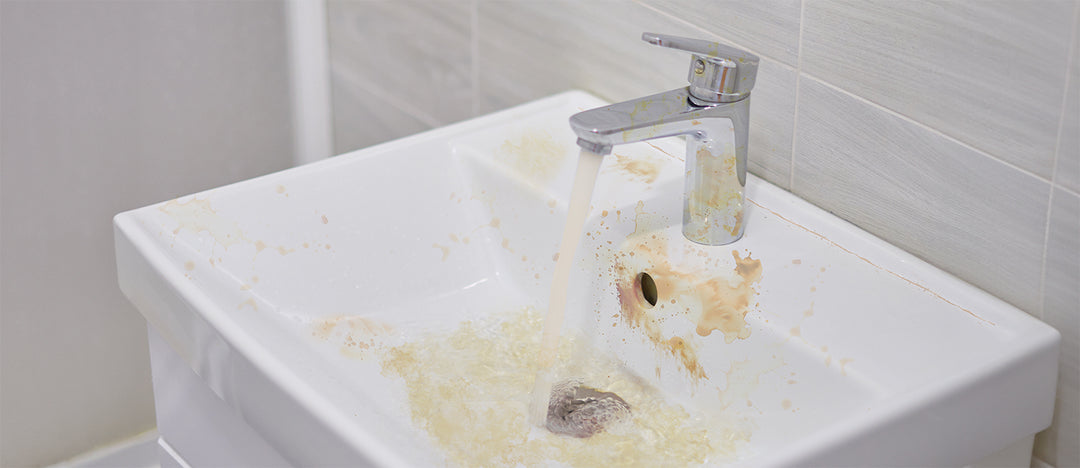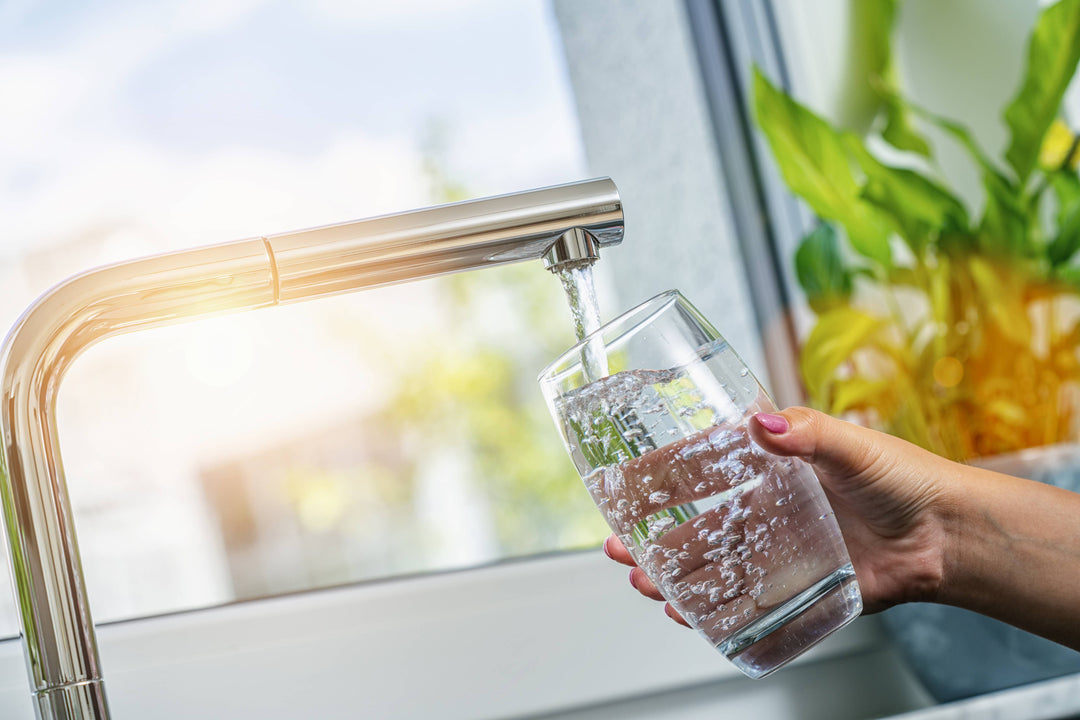The Health and Environmental Benefits of Filtered Water:
A Comprehensive Guide
Table of Contents
- Introduction to Filtered Water
- Understanding Filtered Water
- Health Benefits of Filtered Water
- How to Determine If Water Needs Filtering
- Whole House Filters
- Cost-Effectiveness and Environmental Benefits
- Conclusion
Introduction to Filtered Water
Filtered tap water is more than just a refreshing drink—it's a vital component of a healthy lifestyle. Water filtration ensures that the water you consume, cook with, and bathe in is free from harmful contaminants, providing numerous health and environmental benefits.
Why Filtered Water Matters
Unfiltered tap water can contain various contaminants, including chlorine, lead, and bacteria. These impurities not only affect the taste and smell of water but can also pose serious health risks when consumed over time. By investing in a water filtration system, you can enjoy clean, safe water that nourishes your body and protects your health.
Understanding Filtered Water
Filtered water undergoes a process of purification to remove impurities and contaminants, such as chlorine, heavy metals, and bacteria. This process ensures that the water is safe for consumption and enhances its taste and odor.
Methods of Water Filtration
There are several methods of water filtration, including:
-
Activated Carbon Filtration: Removes organic compounds and improves taste and odor.
-
Reverse Osmosis: Utilizes a semi-permeable membrane to remove contaminants at the molecular level.
-
Ion Exchange: Removes heavy metals and minerals by exchanging ions.
- UV Purification: Destroys bacteria and viruses using ultraviolet light.
Benefits of Different Filtration Methods
Each filtration method has its advantages and is suitable for different water quality issues. For example:
-
Activated Carbon Filtration is effective at removing chlorine and organic compounds, making it ideal for improving taste and odor.
-
Reverse Osmosis is highly efficient at removing a wide range of contaminants, including lead, fluoride, and arsenic.
-
Ion Exchange is excellent for softening water and removing minerals like calcium and magnesium.
- UV Purification effectively kills bacteria and viruses without altering the taste or chemical composition of water.
Health Benefits of Filtered Water
Filtered water offers a myriad of health benefits, including:
-
Improved Taste and Smell: Filtering water removes impurities, resulting in a cleaner and more refreshing taste.
-
Increased Hydration: Clean, filtered water promotes hydration, essential for overall health and well-being.
-
Reduced Exposure to Contaminants: Filtering water removes harmful toxins and chemicals, safeguarding against health risks.
-
Decreased Cancer Risk: Studies suggest that filtered water consumption may lower the risk of certain cancers.
-
Strengthened Immune System: Drinking filtered water supports immune function, reducing the likelihood of illness.
-
Healthier Hair and Skin: Filtered water can improve skin hydration and promote healthier hair.
-
Improved Kidney Function: Filtering water removes toxins, easing the burden on the kidneys.
-
Healthier Cooking and Baking: Using filtered water in culinary endeavors enhances flavor and quality.
-
Safer Beverage Making: Filtered water ensures that beverages are free from contaminants, offering peace of mind.
Case Study: The Impact of Filtered Water on Skin Health
A study conducted by dermatologists found that individuals who switched to filtered water for bathing and skincare experienced significant improvements in skin hydration and clarity. This highlights the importance of filtered water not only for drinking but also for external use.
How to Determine If Water Needs Filtering
To assess water quality, consider:
-
Reviewing City Water Reports: Many municipalities provide annual water quality reports that detail the presence of contaminants in tap water.
-
Using Home Testing Kits: Home testing kits are available to test water quality for specific contaminants.
Water Test kit
Determining whether your water is contaminated. Public water suppliers are typically required to test for contaminant levels, and the results should be accessible to the public. If you rely on a private well for your water supply, it's advisable to have it tested for all contaminants.
We know how important it is for you to make sure that your family and loved ones are healthy and safe, That's why REN Water partnered with HealthGuard Lab's a certified laboratory that utilizes advanced testing methods. HealthGuard Labs kits deliver precise and reliable results, ensuring you have accurate information about your water quality.
WATER TEST KIT
Tips for Testing Water Quality
- Test water from multiple sources in your home, including faucets and showers, to ensure comprehensive analysis.
- Follow instructions carefully when using home testing kits to obtain accurate results.
- Consider consulting with our water quality specialist for professional guidance and recommendations.
Whole House Filters
Whole house water filters provide comprehensive water filtration solutions, ensuring clean water throughout the home. REN Water offers a range of products designed to meet your needs.
Benefits of Whole House Filters
-
Comprehensive Filtration: Whole house filters remove contaminants from all water sources in your home, including faucets, showers, and appliances.
-
Convenience: With a whole house filter, you can enjoy clean water from every tap without the need for individual filtration devices.
- Cost-Effective: Investing in a whole house filter eliminates the need for multiple filtration systems, saving you money in the long run.
NSF Certification
When investing in water filtration systems, look for products certified by the National Sanitation Foundation (NSF). NSF certification ensures that a product meets strict standards for quality, performance, and safety. Choosing NSF-certified filters assures that the system is reliable and effective in removing contaminants from your water supply. This stamp of approval ensures that the product adheres to stringent quality and safety standards, making it a reliable choice for those seeking a water treatment solution they can trust.
Cost-Effectiveness and Environmental Benefits
Filtered water is not only healthier but also more cost-effective and environmentally friendly than bottled water. By reducing plastic bottle pollution and water wastage, filtration systems contribute to a cleaner planet.
Environmental Impact of Bottled Water
Bottled water production contributes to plastic pollution, greenhouse gas emissions, and resource depletion. By choosing filtered tap water over bottled water, you can reduce your environmental footprint and protect natural resources.
Financial Benefits of Water Filters
While the initial cost of a water filtration system may seem high, it is far more cost-effective than purchasing bottled water in the long run. By investing in a water filter, you can save money on bottled water purchases and contribute to a more sustainable future.
Conclusion
Filtered water is a cornerstone of health and well-being, offering a multitude of benefits for both individuals and the environment. Investing in a water filtration system is an investment in your health, your family's health, and the planet's health.





